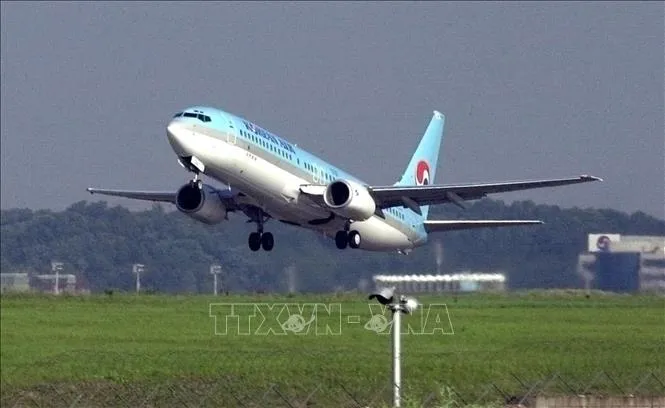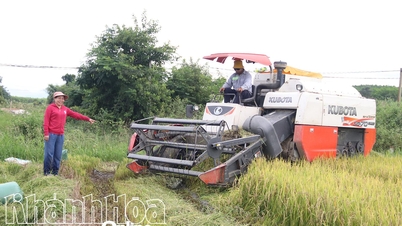The need for sustainable aviation fuels
The 30th Conference of the Parties to the United Nations Framework Convention on Climate Change (COP30) officially opened on November 10. One of the main topics of this conference is biofuels. This is considered a key solution to reduce carbon emissions in the world and the aviation industry is no exception.
Carbon emissions from the aviation industry account for 2.5% to 3% of total global emissions. However, the aviation industry is considered one of the hardest sectors to decarbonize. The key to this is sustainable fuel. Sustainable aviation fuel is a renewable energy source derived from feedstocks such as used cooking oil, agricultural waste, municipal waste, and certain types of algae. Unlike conventional jet fuels, which are derived from finite fossil fuels, sustainable aviation fuel is a renewable, low-carbon alternative that can significantly reduce greenhouse gas emissions. Sustainable aviation fuel is expected to contribute around 65% of the carbon emissions reductions needed to achieve net zero emissions by 2050.
Turning waste cooking oil into jet fuel in China
Demand for sustainable aviation fuel is growing rapidly, promising to become a lucrative market in the near future as the US, the European Union and many other countries require blending and gradually replacing fossil fuels with sustainable fuels. China is also stepping up its research, development and production capacity for sustainable aviation fuel from used cooking oil.
At a high-end restaurant in Chengdu, diners are enjoying a spicy hotpot, unaware that the leftover cooking oil they leave behind will have a second life as jet fuel. With about 150,000 tons of used cooking oil being thrown away by the city’s restaurants each year, local company Jinshang has found a way to process the waste oil and export it to be turned into jet fuel. In the evening, collectors visit hundreds of restaurants to pick up barrels of leftover, greasy broth, then deliver them to the outskirts of the city, where the factory is located. The oil is piped into large tanks and undergoes a refining process to remove any remaining water and impurities, creating a clear, yellowish industrial oil.
"Our Sichuan hotpot is world-famous. Not only is it possible, it is also fully utilized. Our company collects about 300 to 400 tons of waste oil every day. And this is just the amount of oil collected by one company," said Mr. Ye Bin, Chairman of Jinshang Environmental Technology Company.
The refined waste oil is then exported to customers mainly in Europe, the US and Singapore. It will be further processed to create sustainable aviation fuel.
Mr. Dong - Diner shared: "I think utilizing waste is beneficial for the entire recycling system, very environmentally friendly."
Biofuels are crucial to decarbonizing the aviation sector, according to the International Energy Agency. Sustainable aviation fuels produced from bio-based feedstocks can reduce carbon emissions by up to 80% compared to conventional aviation fuels.

Adopting sustainable aviation fuels is a core solution for the aviation industry to reduce emissions.
Difficulties in deploying sustainable aviation fuels
The adoption of sustainable aviation fuels is a core solution for the aviation industry to reduce emissions, but the implementation process still faces many difficulties and major challenges, such as high costs or challenges in supply and production.
The biggest barrier is the high cost of production. Currently, sustainable aviation fuel costs two to five times more than traditional fossil fuels. This high cost is due to the more complex production process and small scale of production. Building new sustainable aviation fuel plants, especially those using advanced technology, requires huge capital investment. Although many countries have support policies, the incentives are not strong enough to balance the cost difference and encourage airlines to make the switch quickly. The second challenge is production supply. Currently, global sustainable aviation fuel production meets only a very small fraction of aviation fuel demand.
Mr. Hemant Mistry - Director of Energy Transition, International Air Transport Association commented: "Sustainable aviation fuel currently accounts for less than 0.1% of total aviation fuel consumed, due to processing costs and a relatively small number of suppliers. Therefore, production needs to be boosted in the coming years so that airlines can have more access to sustainable aviation fuel."
Due to economic uncertainty and rising energy and operating costs, sustainable aviation fuel supplies are forecast to be 30% to 45% below commercial aviation industry targets by 2030.
World pushes for sustainable aviation fuel
Although there are still difficulties in implementing sustainable aviation fuel, this is still an inevitable direction for the world aviation industry. Many countries are promoting sustainable aviation fuel by applying green fuel fees.
From October 2026, passengers flying from Singapore will have to pay a surcharge of between SGD 1 and 41.60. This fee will be used to buy sustainable aviation fuel, aiming to reduce the carbon footprint of the aviation industry. The fee will be calculated based on the distance traveled and the class of the passenger. For example, an economy class passenger will pay SGD 1, equivalent to VND 20,000, for a flight to Southeast Asia.
Air France is also encouraging passengers to contribute to a fund to buy sustainable aviation fuel. Under European Union (EU) regulations, airlines must increase the mandatory sustainable aviation fuel blend to 6% by 2030 and 70% by 2050.
Source: https://vtv.vn/nhien-lieu-ben-vung-giai-phap-cho-hang-khong-xanh-100251112122328686.htm




![[Photo] Prime Minister Pham Minh Chinh attends a conference to review one year of deploying forces to participate in protecting security and order at the grassroots level.](https://vphoto.vietnam.vn/thumb/1200x675/vietnam/resource/IMAGE/2025/11/12/1762957553775_dsc-2379-jpg.webp)
![[Photo] Highways passing through Dong Nai](https://vphoto.vietnam.vn/thumb/1200x675/vietnam/resource/IMAGE/2025/11/12/1762940149627_ndo_br_1-resize-5756-jpg.webp)

































































































![Dong Nai OCOP transition: [Article 3] Linking tourism with OCOP product consumption](https://vphoto.vietnam.vn/thumb/402x226/vietnam/resource/IMAGE/2025/11/10/1762739199309_1324-2740-7_n-162543_981.jpeg)







Comment (0)